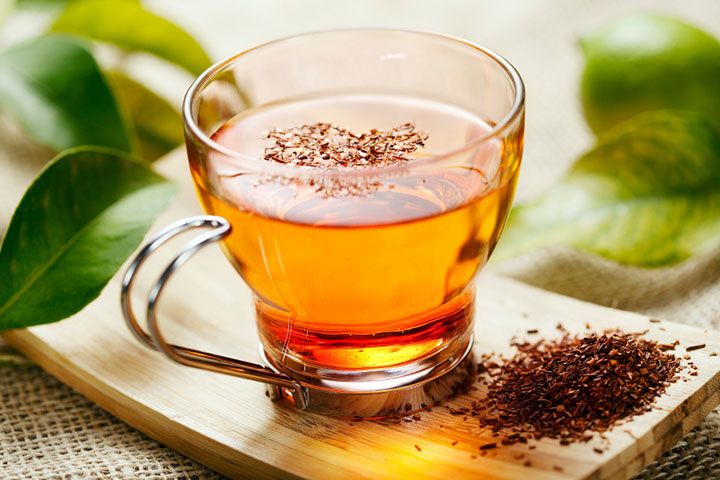Es ist wahrscheinlich, dass wir alle eine heiße Tasse Tee – oder Kräutertee – zumindest von Zeit zu Zeit genießen, wenn nicht sogar täglich. Aber was sind die wichtigsten gesundheitlichen Vorteile, die uns einige dieser beruhigenden Tees bringen können? Lesen Sie weiter, um mehr über die besten Tees für unsere Gesundheit zu erfahren.

“Tee begann als Medizin und wuchs zu einem Getränk”, schreibt der japanische Gelehrte Okakura Kakuzo aus dem 19. Jahrhundert in seiner berüchtigten Publikation The Book of Tea.
Darin spricht er ausführlich über die Geschichte des Tees und die Philosophie der traditionellen japanischen Teezeremonie.
Kakuzo hatte Recht: Moderne Forschungen über die Geschichte des Teetrinkens in der Welt bestätigen, dass dieses Getränk ursprünglich weniger zum Vergnügen oder als Achtsamkeitshilfe konsumiert wurde, was den Trinker auffordert, langsame Schlucke zu nehmen und im Moment zu sein.
Stattdessen, wie Prof. Victor Henry Mair – von der University of Pennsylvania in Philadelphia – in The True History of Teagezeigt hat, wurde die Teepflanze(Camellia sinensis)früh in ihrer Geschichte wegen ihrer medizinischen Eigenschaften populär.
Die Hauptsorten der Teepflanze – Camellia sinensis sinensis und Camellia sinensis assamica – sind für die meisten Teebrühe verantwortlich, an die wir gewöhnt sind: schwarzer Tee, grüner Tee, weißer Tee und Oolong-Tee.
Es gibt viele andere Arten von Tees und Aufgüssen mit verschiedenen anderen Pflanzen, wie Aspalathus linearis, die besser bekannt ist als “Rooibos” oder “Redbush”. In diesem Spotlight geben wir Ihnen einen Überblick über die fünf besten Tees, die Ihrer Gesundheit zugute kommen können.
1. Grüner Tee
Grüner Tee, der bei Teetrinkern überall ein Favorit ist, wird seit Jahren für seine medizinischen Eigenschaften gelobt. Einige neuere Studien haben nun einige dieser Vorteile bestätigt, was darauf hindeutet, dass grüner Tee verschiedene Aspekte unserer Gesundheit schützen kann.

Zunächst wurde festgestellt, dass dieses Getränk die kognitiven Funktionen verbessert, wobei eine Studie es mit einem besseren Arbeitsgedächtnis in Verbindung setzt, der Art, die wir täglich verwenden.
Forscher des Universitätsspitals Basel in der Schweiz fanden heraus, dass gesunde Menschen, die sich bereit erklärten, ein Erfrischungsgetränk mit 27,5 Gramm Grüntee-Extrakt zu konsumieren, eine intensivere Aktivität in Gehirnbereichen zeigten, die mit dem Arbeitsgedächtnis verbunden sind.
Daher hatten Teilnehmer, die den Grüntee-Extrakt eingenommen hatten, eine bessere Konnektivität zwischen dem Frontallappen und dem Parietallappen des Gehirns, zwei Regionen, die an Aspekten des Lernens, der Gedächtnisprozesse und der Entscheidungsfindung beteiligt sind.
Die gesundheitlichen Vorteile von grünem Tee wurden mit ihrem Gehalt an Polyphenolenin Verbindung gebracht, bei denen es sich um Mikronährstoffe mit antioxidativen Eigenschaften handelt. Als Antioxidantien können diese Substanzen vor der Wirkung freier Radikale schützen, die die Art von Zellschäden induzieren, die mit dem Altern übereinstimmen.
Eine Studie aus dem Jahr 2017, die im Journal of the American Chemical Society veröffentlicht wurde, ergab, dass ein solches Polyphenol, das in grünem Tee gefunden wird – Epigallocatechingallat genannt – das Risiko der Alzheimer-Krankheit senken kann, indem es mit den “Bausteinen” interagiert, die Beta-Amyloid-Plaques bilden.
Ein Aufbau dieser Plaques im Gehirn ist typisch für diesen Zustand und beeinträchtigt die Signalübertragung von Gehirnzellen. Epigallocatechingallat, so diese Studie, könnte verhindern, dass sich Beta-Amyloid zu Plaques bildet, was möglicherweise dazu beiträgt, Alzheimer in Schach zu halten.
Dasselbe Grüntee-Polyphenol soll auch das Wachstum von Tumorzellen bestimmter Krebsarten wie Bauchspeicheldrüsenkrebs verlangsamen.
Forschungen, die vom Los Angeles Biomedical Research Institute in Kalifornien geleitet wurden, haben gezeigt, dass Epigallocatechingallat den Stoffwechsel von Bauchspeicheldrüsenkrebszellen stören und dadurch ihr Wachstum beeinträchtigen kann.
2. Jasmintee
Was wir als “Jasmintee” bezeichnen, ist eine Art von Getränk, das normalerweise grünen Tee an seiner Basis hat, dem Jasminblüten für ein angereichertes Aroma hinzugefügt werden.

But the benefits of jasmine tea aren’t solely due to the antioxidant effects of the tea plant, since jasmine blooms also bring their own medicinal properties to the mix.
In the book Ikigai: The Japanese Secret to a Long and Happy Life, authors Héctor García and Francesc Miralles note that the inhabitants of a healthy, long-lived community in the Okinawa Prefecture of Japan are avid drinkers of Sanpin-cha, a special blend of green tea and jasmine.
“Okinawans drink more Sanpin-cha — a mix of green tea and jasmine flowers — than any other kind of tea,” they write, suggesting that this blend may play a role in keeping the inhabitants of Okinawa healthy and mentally agile well into old age. This may be because, like the tea plant, jasmine flowers contain antioxidants — which may protect cells from age-related damage.
Jasmine itself has been linked with improved physical well-being and is said to reduce the impact of stress. That is why some researchers have experimented with compounds derived from this plant in the search of better therapies.
For instance, Prof. Eliezer Flescher — from Tel Aviv University in Israel — noticed that methyl jasmonate, which is a compound obtained from jasmonic acid, found in the jasmine plant, induces the death of cervical cancer cells.
And, if you happen to enjoy drinking jasmine tea simply because you love the way it smells, there’s actually a good reason for that. Research that was published in the European Journal of Applied Physiology explained that the smell of jasmine tea is soothing, able to calm nerves, and able to help regulate mood.
3. Rooibos tea
Another type of tea with antioxidant properties is rooibos, or “redbush tea,” which is prepared from the Aspalathus linearis plant native to South Africa.

Research has suggested that the antioxidant effects of rooibos are similar to, if not quite as strong as, those of green tea.
A recent study on the rat model has suggested that the antioxidants in rooibos tea may protect the liver from oxidative stress, helping to render this organ more resilient to induced damage.
The researchers who conducted the study noted that their findings suggest that rooibos tea or rooibos-derived dietary supplements may offer a useful health boost.
“Results from this study suggest that the daily intake of unfermented rooibos herbal tea or a derived commercial rooibos supplement may benefit human health by providing the liver with an enhanced antioxidant capacity to reduce damage induced by toxicants.”
Moreover, rooibos has also been cited as helpful in lowering blood pressure and relaxing tense muscles, suggesting that the active ingredient in this instance might be one of the flavonoids (pigments) that it contains: chrysoeriol.
Unlike green or black tea, rooibos does not contain any caffeine, so it won’t have the same stimulating effects. This makes it safe to drink well into the evening.
4. Hibiscus tea
Those of you who enjoy the refreshing taste of a more sour brew may also be familiar with herbal infusions of hibiscus, a plant whose flowers can be used not just to make invigorating beverages, but also to give a subtle “punch” to salads, or as an elegant garnish for sophisticated dishes.

The most commonly used variety is Hibiscus sabdariffa, also known as the “roselle.”
For the tea — or, more correctly “tisane” (herbal tea) — its calyces are typically used, although other parts of the plant, such as the leaves, seeds, and roots, are safe for consumption.
Studies have suggested that extracts from the hibiscus calyx and hibiscus leaves have antioxidant and antitumoral effects.
Therefore, they may protect against the aging action of free radicals at a cellular level, as well as fight certain types of leukemia cells.
Hibiscus tea has also been tied to cardiovascular benefits, helping to regulate systolic and diastolic blood pressure — that is, blood pressure during and in-between heart beats, respectively.
Though not so commonly used to brew tea, hibiscus leaves have also been linked repeatedly to a wide array of health benefits. Thus, the polyphenols in hibiscus leaves may help to induce tumor cell death in skin cancer, according to a 2015 study.
Another study from the same year also argued that hibiscus leaf extracts could inhibit the action of prostate cancer cells.
5. Lemon verbena tea
Another herbal tea whose medicinal properties are getting increasingly recognized is that made out of lemon verbena, scientifically dubbed Aloysia citrodora.

It is the citrus-flavored cousin of a better-known plant that has been used in herbal infusions for years: verbena, or vervain (Verbena officinalis).
Infusions made with lemon verbena are great for those who, like me, prefer a subtler citrusy aroma in their hot drinks, rather than the strong, lemony flavor of commonly commercialized citrus tea blends.
The first time that I came upon this plant sold as a tisane herb was in a local organic shop that was selling it as “weight loss tea.”
Tatsächlich haben Studien gezeigt, dass die Polyphenole in dieser Pflanze die Bildung von Fettsäuren verringern können, was ihren potenziellen Einsatz bei der Behandlung von Adipositas-bezogenen Gesundheitsproblemen markiert.
Forscher haben auch vorgeschlagen, dass Zitronenverbenenextrakte helfen können, die Entzündungsmarker im Blut einiger Menschen mit Multipler Sklerosezu senken.
“Die Ergebnisse zeigen, dass die Supplementierung mit Zitronenverbenenextrakten das Zytokinprofil [Entzündungsmarker] abhängig vom klinischen Subtyp beeinflussen kann”, schlussfolgern die Autoren der Studie.
Eine Tasse Tee – oder Tisane – der Wahl kann eine angenehme Möglichkeit sein, etwas Zeit zum Selbstgenuss zu haben und Ihr körperliches und geistiges Wohlbefinden auf subtile Weise zu stimulieren.
Aber denken Sie immer daran, dass, wie das Sprichwort sagt, “eine Schwalbe keinen Sommer macht”, und die stärksten gesundheitlichen Vorteile werden am besten durch einen gesunden, gesunden Lebensstil geerntet.


